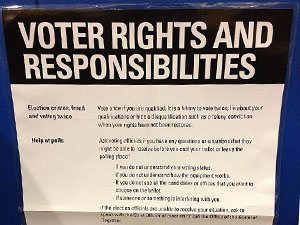Preston Love Jr.
A study on the history of voter suppression.
Description
n 1870, The 15th Amendment to the Constitution provided for all males, regardless of color, the right to vote. This initiated a challenging historical cycle reflecting the good and bad of voting rights in America. Following the 15th Amendment’s passage, African American males registered and voted in significant numbers The positive evidence can be found in the historical records of Black elected officials, and in election results in southern states, state and local offices, and even in Congress. The success of the 15th Amendment was met with strong resistance by Jim Crowism and the beginning of a new cycle of voter restriction. Voter impediments and restrictions ran rampant until, as the cycle continued, the restrictions were met by the Civil Rights Movement, a new stage in the cycle, with the positiveness of the 1965 Voting Rights Act making voter restrictions illegal, and resulting in a new surge of Black elected officials. The cycle continued with the Supreme Court’s 2013 decision of Shelby vs Holder, and with it came the dismantling of the power, and effect, of the 1965 Voting Rights Act. With that decision, the cycle of restrictions took a new, aggressive life. We now find ourselves in renewed debates and struggles over voter restrictions, North, South, East and West, that some argue surpass the restrictions of Jim Crow.
Preston Love Jr.
Title: Author and Adjunct Professor of Black Studies, University of Nebraska- Omaha
Email: [email protected]
Phone: (402)-812-3324
City: Omaha

